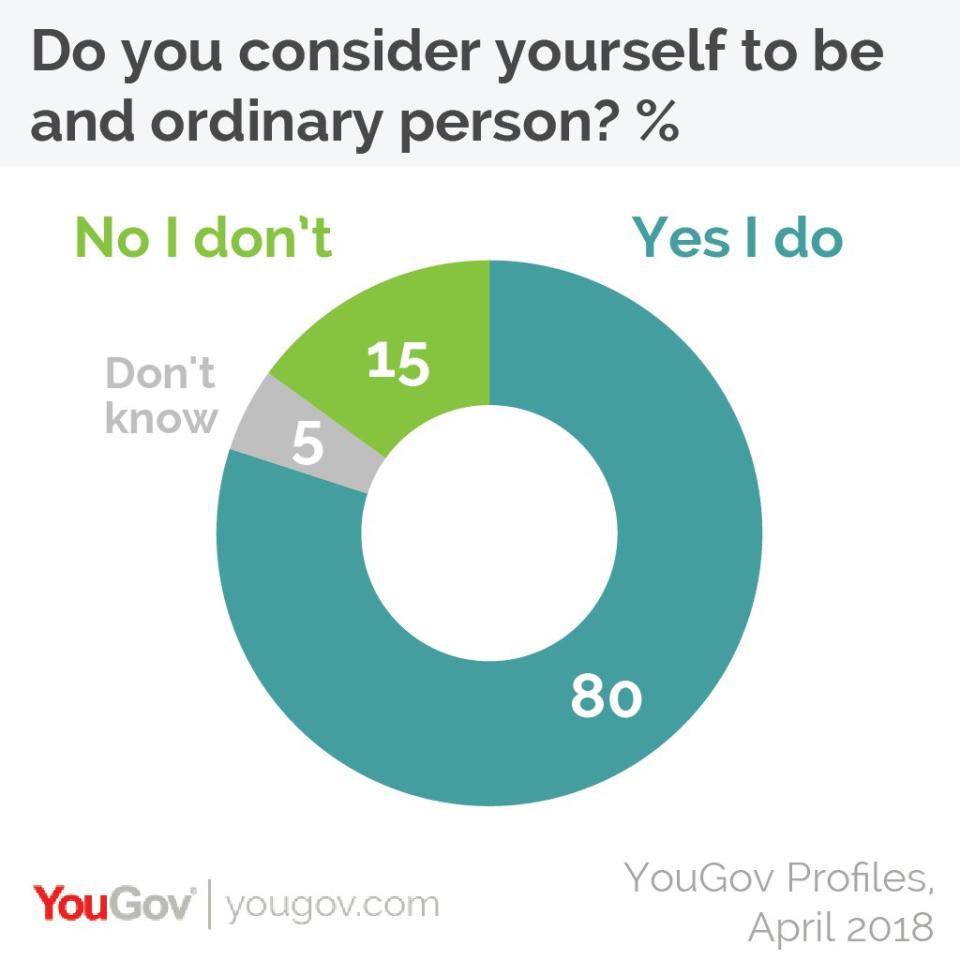Four in five Britons see themselves as 'ordinary', research suggests

We’d all love to be considered ‘extraordinary’ but research has showed that four out of five Briton’s consider themselves the opposite.
According to a poll of 23,000 people asked whether or not they considered themselves to be ordinary, 80% said they thought they were.
Only 15% don’t think they are while the remaining 5% said they don’t know.
The Times used YouGov Profiles to reveal some of the key characteristics that differentiate Brits who see themselves as ordinary from those who don’t.

According to its analysis, age is the most important factor in those who see themselves as ordinary – with older people more more likely they are to consider themselves ordinary.
It also found a strong connection between family life and perceptions of ordinariness, with those who consider themselves ordinary more likely to have children than those who do not.
MORE: 100 year old WWII veteran credits daily 90-minute gym habit for incredible fitness levels
MORE: Wildlife photograph winner disqualified after taxidermy experts claim anteater was stuffed
Ordinary people are more likely than not-ordinary people to be married, showed the research, which divided people into three age groups: Millennials (18-34 year olds), Generation X (35-54 year olds) and Baby Boomers (55-74 year olds).
Education also played a factor but only for Generation X-ers and Boomers, with no such divide existing among Millennials, and across all three age groups women are more likely than men to consider themselves ordinary.
The research even looks at TV habits as a key differentiator between ordinary and not-ordinary people, with ordinary people more likely to spend time watching TV and more likely to get their news from television.

 Yahoo News
Yahoo News 

